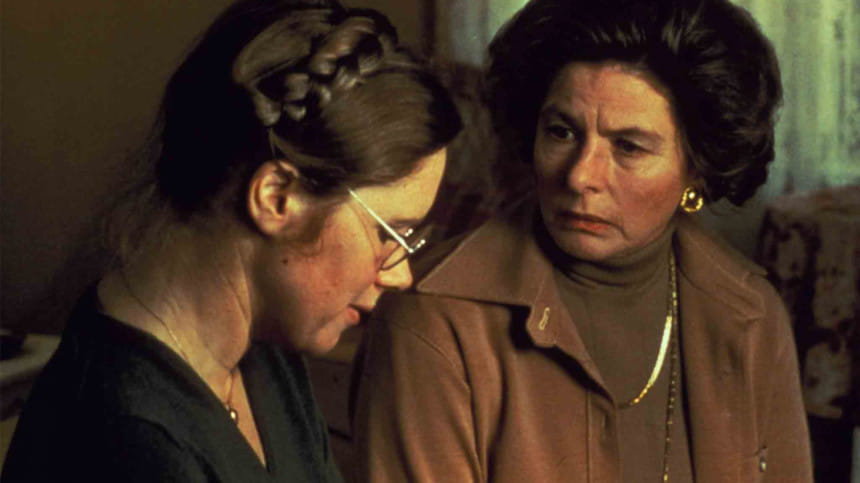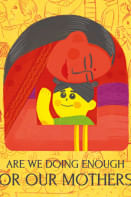Autumn Sonata and the portrayal of the complexities in a mother-daughter relationship

My first encounter with Bergman's work was through the film Summer with Monika, which piqued my interest in his screenplays. Subsequently, in a short time frame, I proceeded to watch a number of his films, including Wild Strawberries, Scenes from a Marriage, Persona, and Winter Light among others. Despite my appreciation for his work, none impacted me as profoundly as Autumn Sonata.
Describing the relationship between a mother and daughter in words can prove to be a challenging task. Syed Shamsul Haque says to writers that we may find our feelings to be indescribable but, in our inability, to express our thoughts lies the potential to create great literature.
Ingmar Bergman's Autumn Sonata is a dialogue-driven film and explores the story of a complicated reunion between a great concert pianist named Charlotte and her daughter, Eva. Eva leads a quiet and austere life caring for her disabled sister Helena, although holding profound animosity toward her mother. During a stressful evening, the two ladies engage in a series of emotionally intense confrontations, revealing unpleasant facts about their pasts and their relationships with one another. The film delves into issues such as maternal neglect, remorse, and the enigmatic nature of forgiveness, culminating in a disturbing and cathartic final sequence.
Among all the relationships that exist in our world, the bond between a mother and her child is widely regarded as one of the purest forms of affection. As a daughter, I can confidently say that I love my mother deeply, and I am certain that she loves me in a similar manner. However, I have noticed that the dynamic between my mother and I is different from the one she shares with my brother.
It appears as though my mother perceives me as a woman rather than simply her child. Off the top of my head, I can name a few reasons as to why this happens – personality clashes, intergenerational differences, life stage differences, family history, and past experiences she had as a woman.
The societal construct in which she found herself prevented her from fully realising her potential, and instead placed upon her a set of responsibilities that she believed she wanted. As a woman, I understand the indoctrination that we undergo under the veil of maturation. Though it may be terrifying to consider, perhaps a part of her did not truly desire any of these responsibilities, like Charlotte. I believe something similar affected my upbringing.
Like Eva, I possess a deep love and reverence for my mother, but there persists a certain animosity that we willingly overlook. This is because addressing it would necessitate engaging in a difficult conversation with my mother, which I prefer to avoid, as years of accumulated emotions are laced with denial. If it is an apology that I am seeking, it is off the table.
To comprehend my mother as a woman and to comprehend her as my mother are two distinct yet intertwining feats. One allows me to understand the trials she has faced and the persistence with which she overcame them. My mother, as a woman, is a true source of inspiration to me, and her journey illuminates the path towards my own aspirations. However, understanding her as only my mother adds a layer of complexity. It encompasses the intricacies of our unique bond, built upon a lifetime of shared experiences, memories, and emotions.
Ingmar Bergman brilliantly balances the conflicting emotions of love and hate within the relationship. Seeing this film through the eyes of a daughter has been overwhelming. Perhaps one day I will see it through the eyes of a mother, and if I do, I will update this review accordingly.
Azra Humayra is a journalism major and enjoys French new wave films as they are slow. Send her film recommendations at: [email protected]

 For all latest news, follow The Daily Star's Google News channel.
For all latest news, follow The Daily Star's Google News channel. 










Comments